Power Brokers of Canberra’s Corridors: Diplomats, bureaucrats and ex-politicians
These are the Australian diplomats, bureaucrats and ex-politicians who play a pivotal role behind the scenes in Canberra. SEE THE FULL LIST OF POWER BROKERS.
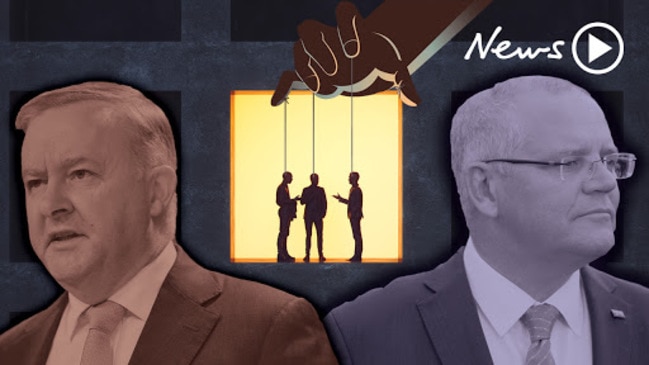
National
Don't miss out on the headlines from National. Followed categories will be added to My News.
Governments come and go but behind the scenes are players pulling the strings and wielding influence unseen by the public.
In 2019, there has been a seismic shift in the landscape of Australia’s power players, brought on by an explosive banking royal commission, a leadership spill, a shock federal election result and a foreign influence crackdown.
Today, News Corp shines a light on who is big behind the scenes and how they operate to influence our daily lives.
The Power Brokers list includes 100 of the country’s most influential people in business, defence, health, the public service, politics and a raft of other fields.
It includes billionaires or business figures with extensive political contacts and influence such as Australia’s richest man Anthony Pratt and Andrew Forrest.
It also includes Prime Minister Scott Morrison’s closest advisors, the lobbyists who represent powerful interest groups or corporations, the groups that wine and dine politicians with gifts or tickets to sporting events and some of the country’s biggest political donors.
The list was compiled by scouring politicians’ interest registers, the Australian Electoral Commission’s annual political donations disclosures, the lobbyist register and speaking to politicians, bureaucrats and Canberra watchers to compile the list.
Other individuals were selected for the influence they wield in other ways, such as former politicians, domestic violence campaigner Rosie Batty, AFL chief Gillon McLachlan or Donald Trump’s man in Canberra Arthur Culvahouse.
DIPLOMATS, BUREAUCRATS AND FORMER POLITICIANS
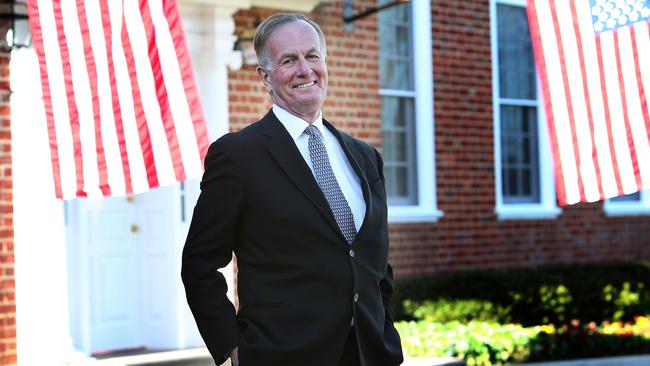
Arthur Culvahouse Jr
As US President Donald Trump’s man in Canberra, Arthur Culvahouse has a role of obvious power in Australia.
But he also wields influence in the public commentary he chooses to make, particularly on China and Australia’s role in the Pacific.
The new US Ambassador has already called on Australia to play “a great power leadership role” in the region, something which Scott Morrison is doing with his Pacific “step up”.
He will have a major role to play going forward, with the US and China still deadlocked in a trade war and Australia trying to balance its relationship with both superpowers.
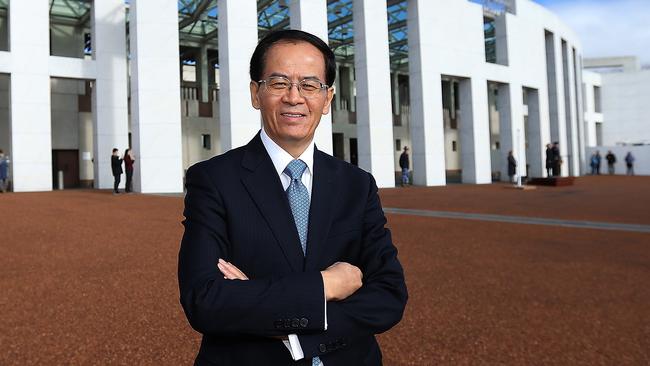
Cheng Jingye
Cheng Jingye is one of the most influential diplomats in Canberra as China’s Ambassador to Australia.
The 59-year-old has wielded considerable power in his three years in the role, particularly given bilateral relations between Beijing and Canberra became fairly frosty in late 2017 and early 2018 amid Malcolm Turnbull’s foreign influence crackdown.
Aside from official meetings with leaders in Australia, Cheng wields power through his public commentary on Australia-China relations, which often involve subtle warnings.
He recently advised foreign governments not to interfere in Hong Kong or China’s affairs.
And in 2017, amid concerns about foreign influence in Australian politics, he slammed the “groundless” accusations against China and condemned media organisations for reporting that ASIO had warned the major political parties not to accept donations from two Chinese businessmen.
Like US Ambassador Arthur Culvahouse, he will have a major role to play in Canberra going forward as Australia tries to balance its relation to balance its relationship with the US and China in an increasingly fraught climate.
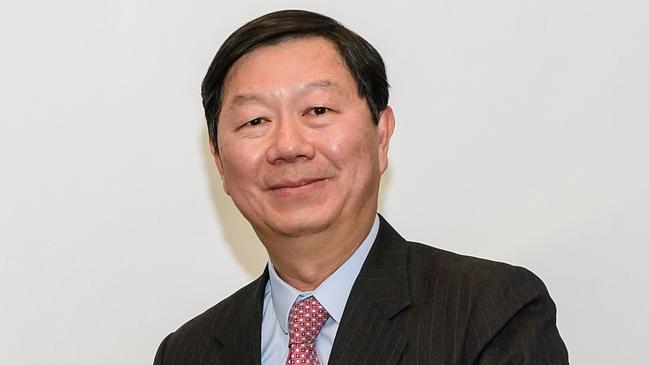
Elliott Charng
The diplomatic representative from the tiny democratic island of Taiwan is an unlikely inclusion on a list of influential people in Australia.
And yet, Elliott Charng deserves a mention given the Taipei Economic and Cultural Office’s operations in Canberra.
More than a dozen federal politicians attended study tours to Taiwan sponsored by the Taiwanese government in the 45th Parliament, including new Labor leader Anthony Albanese and Labor frontbenchers Jim Chalmers and Brendan O’Connor.
Liberal MPs Trevor Evans, Kevin Andrews and Tim Wilson also travelled to the country.
It indicates a strong push from Taiwan to engage with political leaders in Australia, particularly as China increasingly flexes its might in the region.
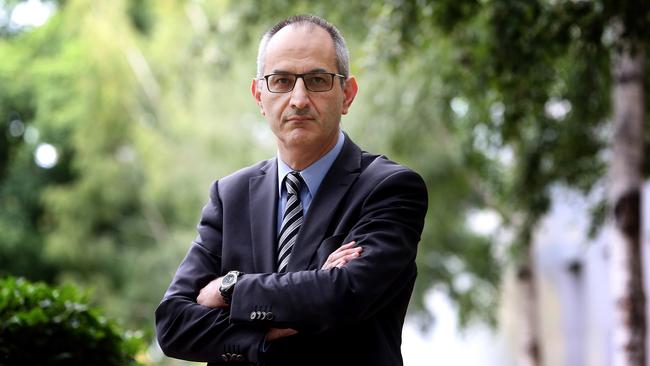
Michael Pezzullo
Mike Pezzullo is one of Australia’s most powerful people as the head of the Home Affairs Department.
But Australians would rarely see or hear from him, except at the regular questioning of department heads at Senate estimates or the occasional speech.
In the role, he oversees the day to day operation of immigration and border protection but also has influence over the country’s cyber security strategy, counter-terrorism efforts, and developing policy to tackle organised crime, among others.
Pezzullo was a high-profile Labor staffer before he took up senior positions in the Defence Department and then the Department of Immigration and Border Protection.
He worked for former Opposition leader Kim Beazley and Foreign Affairs Minister Gareth Evans during his stint as a staffer.
He became Secretary of Immigration and Border Protection in 2014 and was then named inaugural secretary of Home Affairs when it was created in 2017.
During recent parliamentary hearings, he made headlines for praising the Australian Federal Police over its controversial raid on News Corp journalist Annika Smethurst.
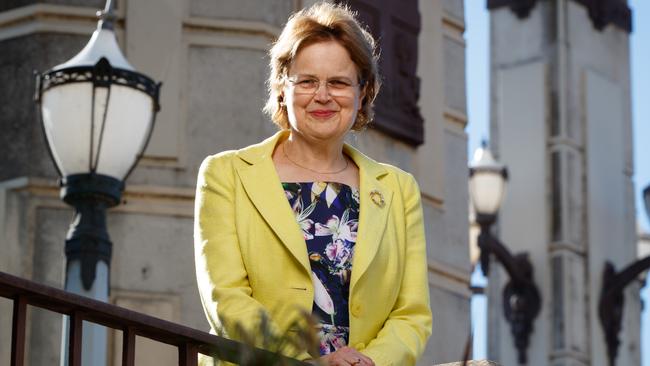
Frances Adamson
Frances Adamson is Australia’s top diplomat.
She is one of the most powerful figures in Canberra as the head of the Department of Foreign Affairs and Trade, but is rarely in the public eye.
Adamson was appointed DFAT Secretary in 2016 by Malcolm Turnbull after serving for five years as Australia’s Ambassador to China.
She had a brief stint as a Labor staffer in the Rudd Government, working as chief of staff to Stephen Smith when he was Foreign Affairs Minister and then Defence Minister.
Before that Adamson had been posted to London as Australia’s Deputy High Commissioner.
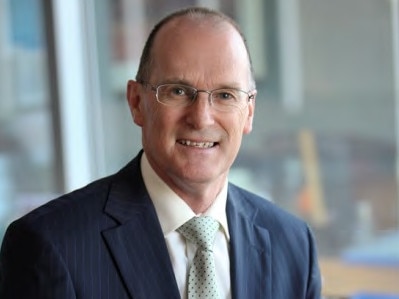
Philip Gaetjens
Former Scott Morrison staffer Philip Gaetjens has recently become Australia’s top public servant.
Gaetjens was Morrison’s chief of staff for almost three years before he was appointed Secretary of the Treasury Department in August 2018.
He has now been promoted to Secretary of the Department of Prime Minister and Cabinet — the highest role in the Canberra bureaucracy, which comes with a $914,000 pay packet.
That’s almost doubles the prime minister’s salary.
His job as head of PM & C will be to provide advice and support to the prime minister, putting him in an incredibly influential position.
Gaetjens is a Canberra veteran, and served for ten years as chief of staff to Peter Costello, including when he was rolling out the GST.
He also worked as Secretary of the NSW Treasury and overseas Director of the Asia-Pacific Economic Cooperation (APEC) Policy Support Unit in Singapore.
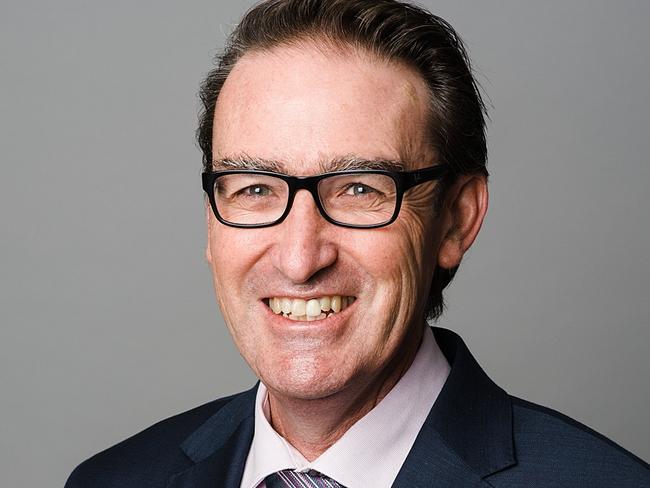
Dr Steven Kennedy
Dr Steven Kennedy is the new head of the federal Treasury department.
It’s a role that’s rarely in the public eye but holds enormous power in shaping the country’s economy, taxes, and key policies that affect Australians’ day to day lives.
Treasury is also responsible for preparing the federal budget every year.
Dr Kennedy was the Secretary of the Department of Infrastructure, Regional Development and Cities before he was promoted into the role when current Secretary Philip Gaetjens was appointed the new head of the Department of Prime Minister and Cabinet.
Before that he was Deputy Secretary of PM & C.
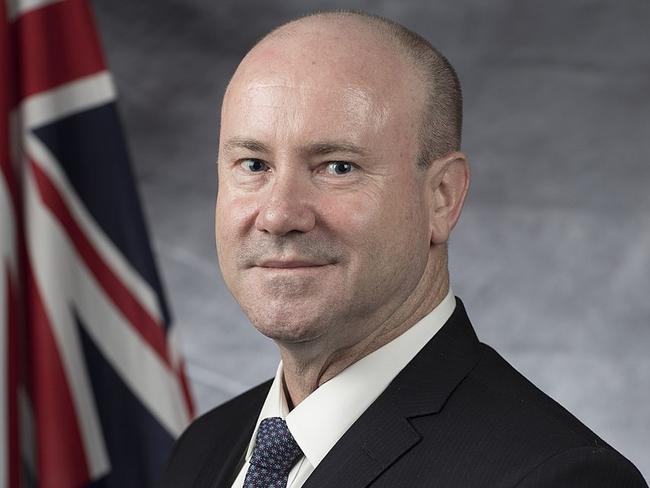
Greg Moriarty
Greg Moriarty is one of the most senior figures in Canberra as the head of the Defence Department.
He is equal in rank to Chief of the Defence Force Angus Campbell.
They jointly manage the Australian Defence Organisation charged with defending Australia and report directly to Defence Minister Linda Reynolds.
Moriarty has long been an influential figure in Canberra. Immediately before his appointment has head of Defence, he served for four years as an adviser and chief of staff to Malcolm Turnbull.
He had also served as Australia’s Ambassador to Iran and Indonesia and for one year as the deputy secretary of the Department of Foreign Affairs and Trade.
Moriarty started his career in the Defence Department in the 1980s as an analyst.
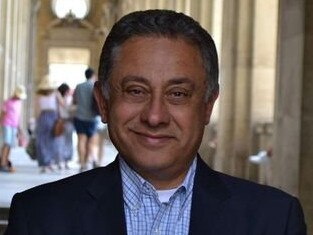
Mohamed Khairat
Egypt’s Ambassador to Australia Mohamed Khairat is not one of the more obvious power players in Canberra.
But he emerged as an influential figure in October last year when Scott Morrison announced the government was considering shifting Australia’s embassy in Israel to Jerusalem.
It prompted an outcry from Palestine and other Muslim nations, including Indonesia, who mobilised to present a united front against the move. A similar move by US President Donald Trump earlier in the year has sparked violent protests across the Middle East.
Ambassadors from 13 Arab nations met in Canberra the day after the PM’s announcement to discuss ways to stop the shift.
Khairat, as dean of the Council of Arab Ambassadors, publicly condemned the proposal, saying it would not help the stalled peace process.
The government later backed away from the proposal, which had been announced in the lead up to the Wentworth by-election and was criticised as being politically motivated given the electorate’s large Jewish population.
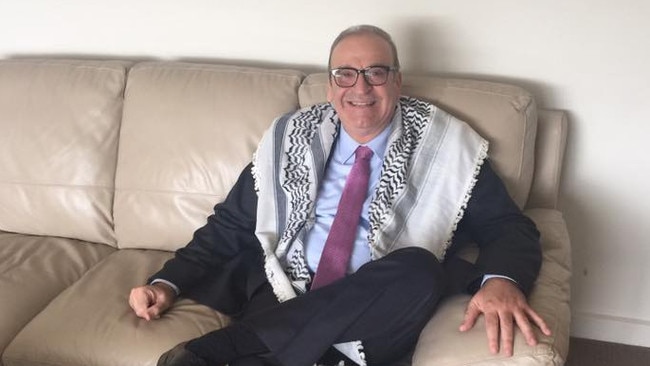
Izzat Salah Abdulhadi
Palestine’s envoy to Australia Izzat Salah Abdulhadi was a key voice in opposing Scott Morrison’s proposal to shift Australia’s embassy in Israel to Jerusalem.
He’s also an influential figure given the General Delegation of Palestine to Australia spends thousands on study tours for federal politicians to Palestine and the Middle East.
Greens MP Adam Bandt, Labor MPs Anne Aly, Maria Vamvakinou, Chris Hayes and Coalition MPs Llew O’Brien and Andrew Laming attended a cross parliamentary delegation to Kuwait, Jordan and Palestine hosted by the Palestinian Authority and the Kuwait Government in January this year.
Other MPs attended a similar trip to Qatar and Palestine also sponsored by the Palestinian Authority in 2017.
One MP described it in their interest register as an opportunity to discuss energy, trade, human rights, development, migration and other interests.
The Australia/Israel & Jewish Affairs Council also regularly hosts similar study trips for Australian politicians as both countries foster ties with other nations amid their conflict over Jerusalem.
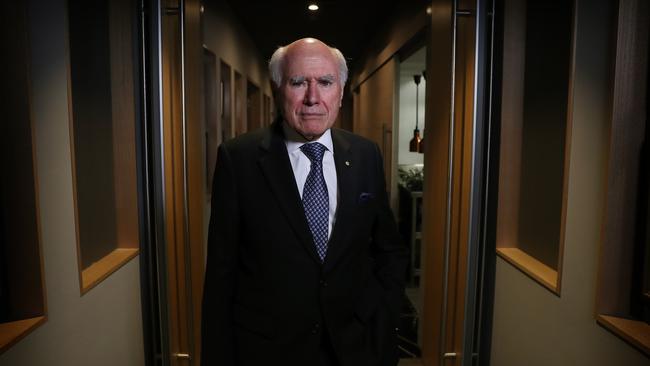
John Howard
John Howard remains one of the country’s most influential voices as a former prime minister and a giant of the Liberal Party.
Howard celebrated his 80th birthday in July but the Liberal elder appeared tireless in April and May flying across the country to support Scott Morrison and marginal seat MPs on the election campaign.
Earlier this year, Howard came under fire when he publicly supported Cardinal George Pell after he was convicted of sexually abusing two boys.
The former Prime Minister was one of ten people to provide a character reference for Pell, and wrote that he was a person of “high intelligence and exemplary character”.
Howard has also lent his weight in recent years to a controversial push to establish courses promoting western civilisation at Australian universities as the chairman of The Ramsay Centre for Western Civilisation. The Centre has locked in an agreement with the University of Wollongong and the University of Queensland to offer the courses.
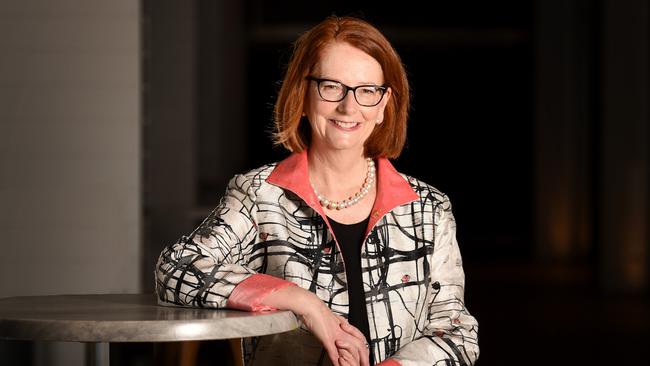
Julia Gillard
Julia Gillard rarely gets involved in public debate these days but when she does, it carries enormous weight.
The former prime minister has been very selective about her roles post-politics but she recently took over from former Victorian Premier Jeff Kennett as the chair of mental health organisation BeyondBlue.
Gillard has used her standing as a former leader of the country to put a renewed spotlight on suicide prevention in the role.
She recently declared suicide was “one of the greatest public health challenges of our time”.
As a respected former PM, Gillard remains connected to the nation’s most powerful people and is a giant of the Labor Party.
She has also built a network of powerful figures worldwide — including an unlikely friendship with pop star Rihanna — in her role as chair of the Global Partnership for Education, which promotes girls’ education in developing countries.
Gillard has also chosen to champion the issue of getting more women in leadership roles and ending the gender pay gap at a role with King’s College in London.
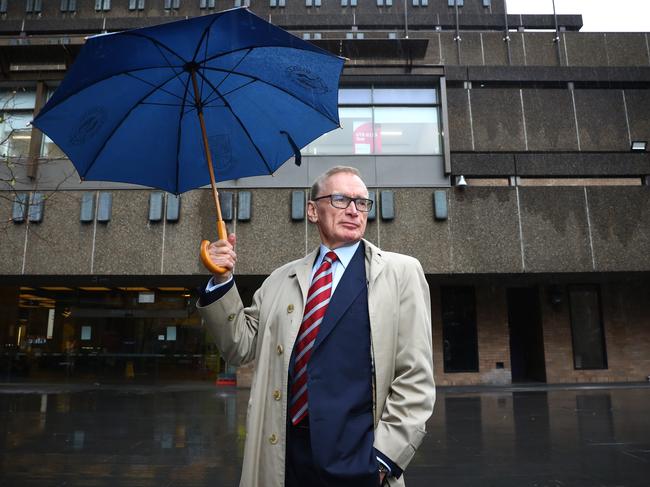
Bob Carr
Bob Carr has become one of the nation’s biggest proponents of a closer relationship with China since quitting politics.
The former Foreign Affairs Minister and former NSW Premier became an outspoken proponent of closer engagement while leading a China relations think tank at the University of Technology Sydney, which was partially established with a $1.8 million donation from Chinese businessman Huang Xiangmo.
The Labor Party elder’s close links with China came under scrutiny in 2017 and 2018 amid growing concerns about foreign influence in Australian politics.
It was reported in May last year that he had suggested Labor Senator Kristina Keneally ask questions in Senate estimates about details of China expert John Garnaut’s work, although Carr denied he had drafted questions for Senator Keneally.
In June this year, UTS announced Carr was taking up a new role to be a powerful voice on climate change after completing his five year stint as director of the Australia-China Relations Institute ended.
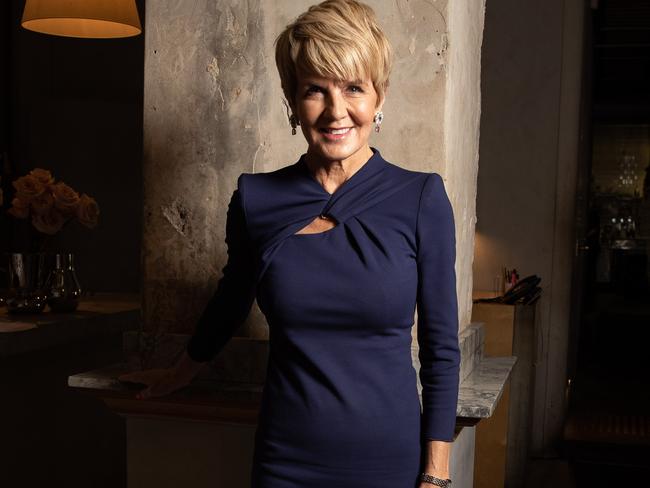
Julie Bishop
Julie Bishop has been very selective about how she wields her influence after quitting politics.
The foreign affairs minister turned down an offer to be the next governor of her birth state of South Australia, and to be an ambassador for the republican movement.
She signed on to be the next chancellor of the Australian National University, taking over in January from another former foreign affairs minister, Gareth Evans.
It’s a powerful role representing one of the nation’s top universities.
The former Deputy Liberal leader has also taken up roles on the boards of artificial intelligence firm Afiniti, development firm Palladium, the Human Vaccines Project, and as Chair of the Telethon Kids Institute in Perth.
But Bishop has also been wielding her influence in other ways, particularly in making public comments about the treatment of women in politics in recent weeks.
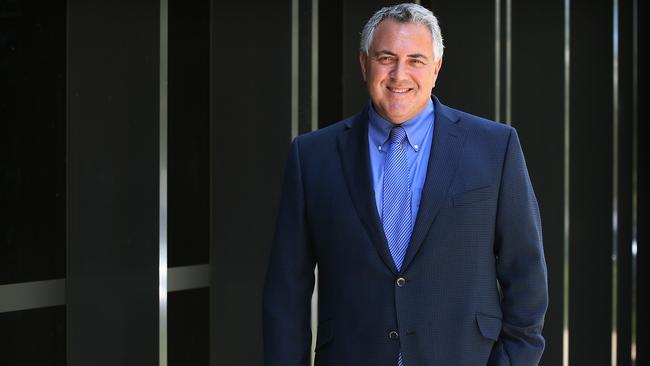
Joe Hockey
Joe Hockey is stepping down as Australia’s Ambassador to the US but the ties he has forged in Washington mean he will remain an influential figure.
The former Treasurer was instrumental in turning what could have been a rocky relationship with US President Donald Trump, after a particularly terse phone call with Malcolm Turnbull, into one where Australia was one of the only countries to be exempt from new US steel and aluminium tariffs last year.
In another sign of the close relationship, President Trump will be hosting a state dinner for Prime Minister Scott Morrison in September — an honour last bestowed on John Howard by George Bush in 2006.
Hockey has been able to forge a personal relationship with Trump, and is reportedly close with the president’s acting chief of staff Mick Mulvaney, among other senior figures.
Prime Minister Morrison and incoming Australian Ambassador to the US Arthur Sinodinos are likely to still make use of his network, particularly as the US approaches another presidential election, although Hockey has yet to indicate what role he will take up next.
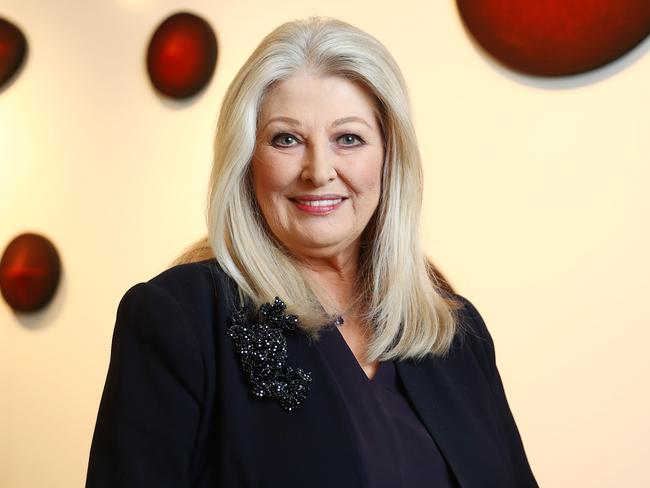
Helen Coonan
Helen Coonan has remained an influential figure in Canberra despite leaving federal politics almost a decade ago.
The former Howard Government cabinet minister quit politics in 2011 but now sits on multiple boards including Crown Resorts, Snowy Hydro Ltd and Obesity Australia.
In 2018, she was appointed by Malcolm Turnbull as the inaugural chair of the Australian Financial Complaints Authority, which was set up to oversee complaints about banking misconduct and compensation claims.
Coonan was then named the new face of mining lobbyist group, the Minerals Council of Australia, in May 2019 replacing Dr Vanessa Guthrie as chair.
It makes her a powerful voice in Canberra for companies like Rio Tinto, Glencore and BHP Billiton, with a vast network of political ties from her 15 years as a senator.
The MCA is an influential group which spends tens of thousands on political lobbying each year, including donations to the Liberals, Nationals and Labor Party.
It also sponsored a study trip to Japan for Liberal backbencher Craig Kelly in 2018, mine tours in WA for a number of Labor MPs and dinners for other politicians in the 45th Parliament.
Coonan is also a consultant for Samsung and Allegis Group and sits on the advisory council of the National Breast Cancer Foundation.
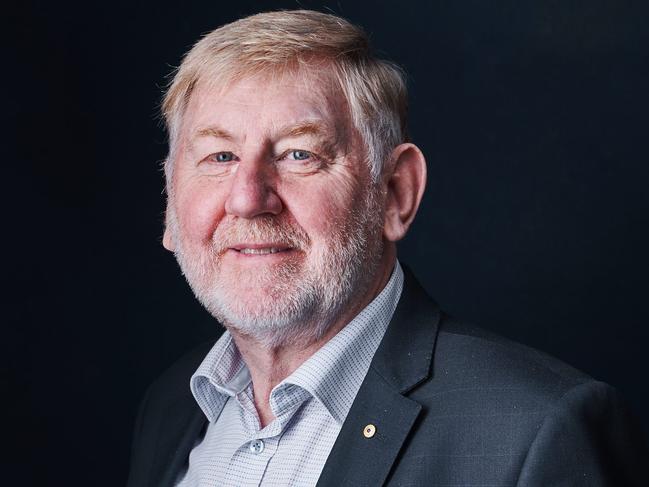
Martin Ferguson
Former Labor minister Martin Ferguson became a voice for the country’s oil and gas lobby just one month after quitting politics.
He joined the Australian Petroleum Production & Exploration Association, APPEA, as chair of its advisory board in October 2013, after five years overseeing the industry as Australia’s minister for resources.
Ferguson faced heavy criticism over the move, particularly from West Australian Labor figures which called for him to be expelled from the party.
He resisted the move and remains a member.
APPEA represents oil and gas producers including Chevron, BHP, ExxonMobil and Origin, among dozens of others.
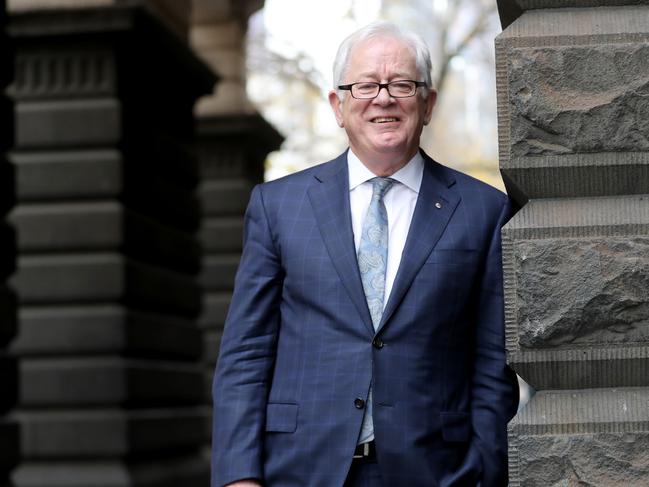
Andrew Robb
Former trade minister Andrew Robb’s post-politics career has included an $880,000 consultant role for a Chinese company and a spot on the board of Network Ten representing mining magnate Gina Rinehart.
He is also the head of think tank Asialink, which promotes closer ties with Asia.
Robb has been one of the most prominent voices calling for closer ties with China.
He took up the lucrative consultant role with Chinese-owned company Landbridge, which holds the lease over the Darwin port, after leaving politics. He left the firm late last year and is now a private consultant, who offers help to companies in Australia wanting to trade or invest in the Asia Pacific, or Asia-Pacific companies that want to invest in Australia.
Robb is also a part owner of his daughter’s The Boathouse Group, which runs a string of Sydney restaurants.
He also sits on the board of a Rinehart’s cattle enterprise S Kidman and Co, which she co-owns with Chinese company Shanghai CRED.
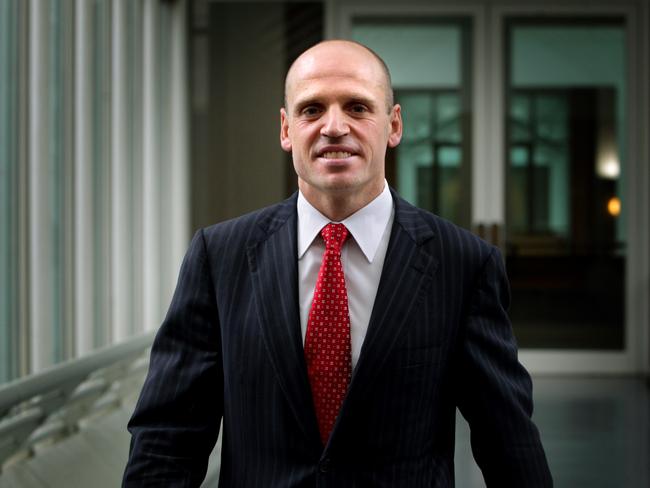
Mark Arbib
Mark Arbib is James Packer’s right hand man in Australia.
The former Labor senator and powerbroker joined Packer’s private investment company Consolidated Press Holdings in 2012, just months after he quit politics.
Arbib is a close confidant of Packer’s and has been on the board of the Packer Family Foundation since 2014.
He is director of strategy and business development at CPH.
The former federal Sports Minister is also on the board of the Australian Olympics Committee, the South Sydney Rabbitohs, and has been the chairman of Athletics Australia since 2015.
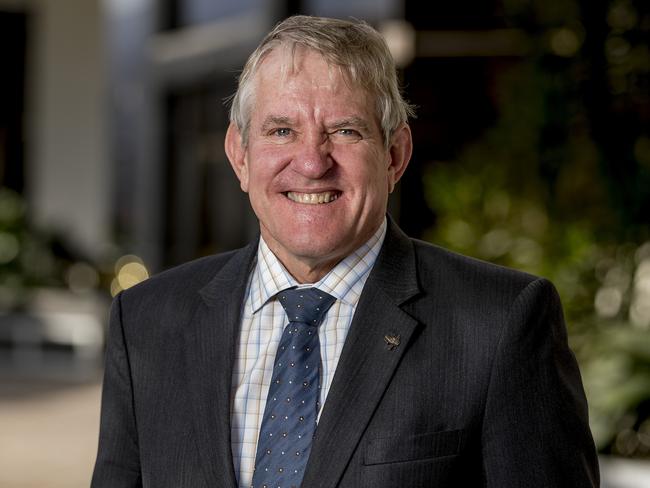
Ian Macfarlane
Ian Macfarlane has become an outspoken lobbyist for the mining and resources sector since quitting politics.
The former federal cabinet minister responsible for overseeing the resources and energy sector was appointed chief executive of the Queensland Resources Council just months after leaving his 17-year career in federal parliament in 2016.
The QRC is an influential industry lobby group, whose extensive list of members include Adani Mining, Aurizon, ConocoPhilips, Glencore, Origin Energy and Shell.
It gives the companies a powerful voice with extensive contacts in Canberra and knowledge of the resources sector.
Macfarlane also took up a role on the board of oil and gas company Woodside after quitting politics, which likewise gives the company access to his long experience as resources minister.
